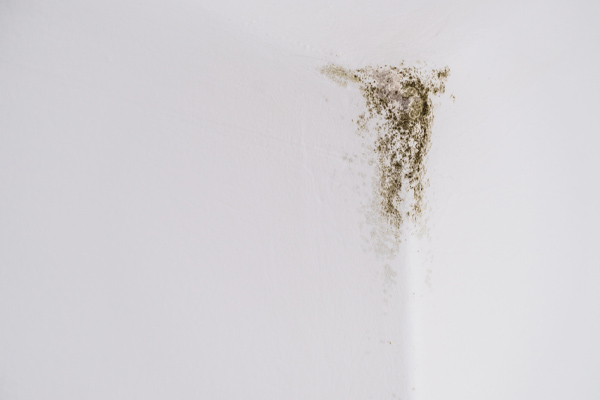
As per the University of Missouri, summer’s hot and humid air conditions are ideal for mildew growth. Unfortunately, mildew causes respiratory problems such as asthma and wheezing when it grows in a house. Additionally, mildew leaves unsightly stains on surfaces. As a result, as summer approaches, you should take steps to protect your house against mildew and bad air quality. Investing in a decent dehumidifier, especially a whole-home dehumidifier, is one way to attain this goal. Here is some additional information on this subject.
The Advantages of Using a Whole-House Dehumidifier
We’ll go over several benefits of installing a whole-house dehumidifier in this post,
A Brief Overview of Mildew

Mildew is a powdery fungus that thrives in moist environments, such as on food, floors, walls, and ceilings, to name a few. It varies in hue from yellow to gray to white. Mildew has a different texture and color to mold. Mold, in particular, has a slimy or fuzzy feel and is usually black or green in appearance.
Dehumidifier – What Is It?
A dehumidifier is a piece of electrical equipment that eliminates moisture from the air, making it safe to breathe. It may be utilized in both residential and business environments.
Dehumidifiers come in a variety of sizes and are selected based on the area that needs to be dehumidified. For example, the Association of Home Appliance Manufacturers recommends that a 500-square-foot residence that is moderately moist use a 10-pint per 24-hour dehumidifier (AHAM).
When compared to standalone dehumidifiers, whole-house dehumidifiers are designed to work in combination with a heating and cooling system to provide a more consistent level of humidity control. This means that your whole-house dehumidifier must be connected to your HVAC unit in order to function properly and efficiently. It is recommended that you have it installed by a trained HVAC technician in order to ensure optimal performance.
What Is The Function Of A Whole House Dehumidification System?

Among the dehumidifier’s key components are the fan, the compressor, and the water storage tank. When the fan is turned on, it draws hot, humid air from the surrounding environment and directs it to the compressor. As a result, it shrinks, and the moisture contained within it condenses to form small droplets of water. As a result, the droplets gather in the storage tank, resulting in the release of dry air back into the atmosphere
Bear in mind that if this gadget is left running for an extended period of time, it will suck all the moisture from the air, leaving it extremely dry. Keeping this in mind, limit its use to approximately 12 hours per day, depending on the level of moisture in your home. In the summer, the US Department of Energy recommends that you keep the relative humidity (RH) between 40% and 50%. (DOE). If you’re unsure how to calculate the relative humidity level in your home, a knowledgeable HVAC specialist can assist you.
A Whole-House Dehumidifier’s Advantage

A dehumidifier’s primary function is to extract moisture from the air, which has the following benefits:
- Increases Comfort: Excess humidity can make your skin feel clammy and sticky, disrupting your comfort. Eliminating humidity will make your skin feel better and provide some comfort.
- Lowers Energy Bills: Whenever your home is humid, your HVAC system will work overtime to eliminate the excess moisture, increasing energy usage. As a result, energy usage is much lower in a drier environment.
- Protects Your Personal Property: Window frames and walls are stained by damp air. And damp air also warps furniture and bubbles paint. This might be an expensive repair or replacement.
- Prevents Respiratory Problems: Mildew grows in moist environments and contributes to poor indoor air quality and respiratory problems. As a result, it is critical to maintain a healthy moisture balance.
How To Choose A Whole-Home Dehumidifier
There are many various sizes and capacities of dehumidifiers to choose from. This suggests that, prior to purchasing a dehumidifier, you need first calculate your dehumidification requirements for your space. Consider the following scenario: If you live in a modest house that isn’t excessively humid, a low-capacity dehumidifier might be adequate. Beyond capacity, there are several more factors to consider, including the following:
- Price of a Whole House Dehumidifier: Pricey does not always imply superior quality. Having said that, while purchasing a dehumidifier, keep a close eye on your budget.
- Warranty on Whole-House Dehumidifiers: A warranty would most likely entitle you to a replacement or repair if your dehumidifier fails to perform as planned.
- Noise from Whole House Dehumidifiers: Because a fan is used, the majority of older types of dehumidifiers produce a lot of noise when operating. Due to the fact that modern versions are quieter, you should consider acquiring one for maximum comfort.
- Dehumidifier Special Features: This is a critical point to consider when comparing two dehumidifiers with identical pricing and capacity. Nowadays, popular extra features on dehumidifiers include automatic shutdown when the desired relative humidity level is reached, preset mode, defrosting mode, and an Energy Star label indicating efficiency.
We recommend that you seek the advice of a professional HVAC specialist if you are inexperienced with dehumidifiers and are unaware of how to assess different varieties. You may even be able to discover a less expensive, but still high-quality, whole-home dehumidifier with the help of a professional. Portable dehumidifiers are also available for purchase on the market. However, because these devices only affect the humidity levels in a single room, they do not offer as many advantages as a whole-house dehumidifier.
Conclusion
Numerous advantages may be gained by using a whole-house humidifier. Reduce the amount of moisture in your home by taking a cold shower, keeping damp clothes out of the house, and growing plants that absorb moisture. A professional HVAC contractor that is knowledgeable about the correct use of a whole-house humidifier to manage interior humidity levels should be contacted if you want assistance with dehumidifier installation, maintenance, or repair.
Get in Touch With Point Bay Fuel for All of Your HVAC Needs

Point Bay Fuel delivers great heating and cooling services throughout Ocean and Monmouth County, New Jersey. HVAC tune-ups, repairs, installations, and replacements are all carried out by highly qualified professionals in the field. Our technicians are well-versed in the correct maintenance and repair of your HVAC system.
Point Bay Fuel offers the lowest heating and cooling service prices in the region. We can provide you with maintenance services that boost your comfort, and at the same time increasing your energy efficiency and lowering your household heating and cooling expenditures. Also, we can help you choose the perfect HVAC system for your house while remaining within your budget. We guarantee all of our work to assure your complete pleasure. Give Point Bay Fuel a call now to book a service appointment. We give free in-home estimates.
Contact us now by calling (732) 349-5059 to speak to one of our home comfort specialists!
The post Humidity: The Advantages Of Using A Whole-House Dehumidifier appeared first on Point Bay Fuel.
No comments:
Post a Comment